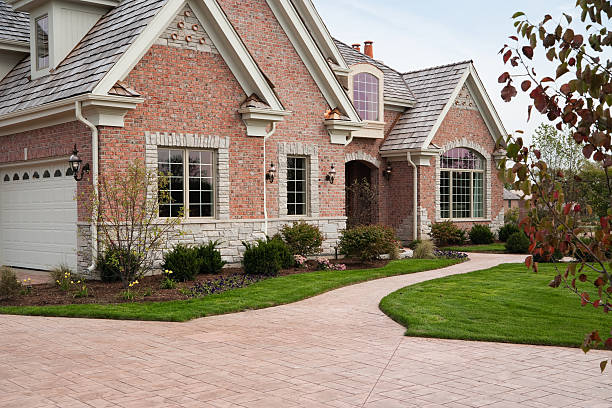Concrete is a popular choice for driveway construction due to its durability, low maintenance requirements, and attractive appearance. However, not all concrete is created equal and certain types of concrete are better suited for driveways than others. This article will discuss the different types of concrete, their benefits, and which type of concrete is best for driveway installation.
Concrete can be divided into two main categories: ready-mix concrete and precast concrete. Ready-mix concrete is a mixture of cement, sand, gravel and water that can be delivered to the job site in a truck with a rotating drum mixer. This type of concrete is often used in large construction projects because it allows for quick installation since it only needs to be poured into the formwork and then left to cure.
Precast concrete refers to any type of concrete that has been pre-made offsite in factories and then delivered to the job site for installation. This type of concrete typically requires less labor during installation since it does not need to be mixed or molded onsite. Precast concrete comes in various forms, such as steps, pavers, posts and more. Precast pavement slabs can also be used as driveway material due to their strength and durability.
Another type of driveway material is asphalt which consists of a mix of aggregate stone and bitumen binder that is heated until it becomes malleable enough to spread across a surface using asphalt paving machines.. Asphalt driveways are usually less expensive than other materials since they require minimal excavation work prior to installation, but they do require extra maintenance over time as they may develop cracks or sink if not properly maintained.
When choosing a material for your driveway, there are several factors worth considering such as climate conditions (i.e., temperature fluctuations), ground movement (if the earth beneath your driveway shifts due to settling or erosion), and aesthetic preferences (i.e., whether you prefer an elegant look or more rugged look). In terms of climate conditions, some experts suggest that ready-mix concrete may be the best option for areas with extremely cold temperatures as it does not suffer from frost heave as other materials might; however, each situation should be assessed separately by an experienced professional before making any decisions about which material to use.
In terms of ground movement, precast pavement slabs are often recommended because they don’t require any excavation work prior to installation meaning there is no risk associated with shifting soil beneath the driveway since it has already been laid out on top before being installed. Additionally, precast pavement slabs provide a smooth finish which gives your driveway an elegant look without much effort required on your part after installation due to reduced maintenance requirements over time compared with asphalt driveways which need regular resurfacing every few years depending on climate conditions and usage rates.
Overall when deciding what type of material you should use for your new driveway, both ready-mix concrete and precast pavement slabs offer great options depending on your budget constraints and area’s climate conditions, but generally speaking, precast pavement slabs offer superior results in terms of aesthetics as well as long term performance due to their strength, durability and easy maintenance requirement afterward making them one the most popular choices when installing new driveways today.

